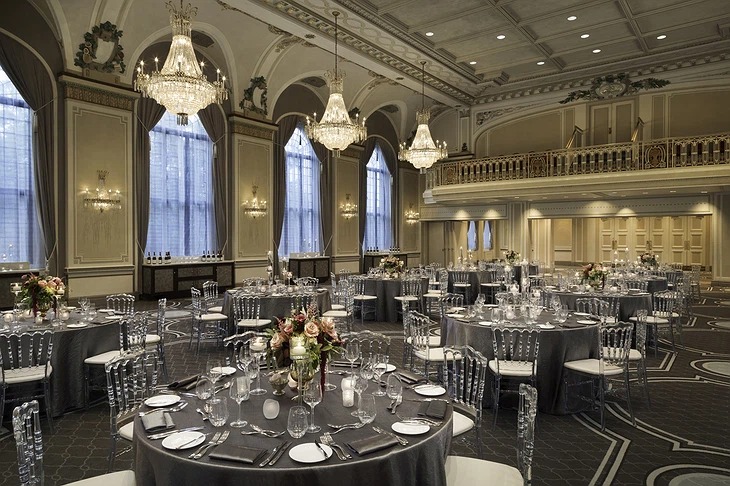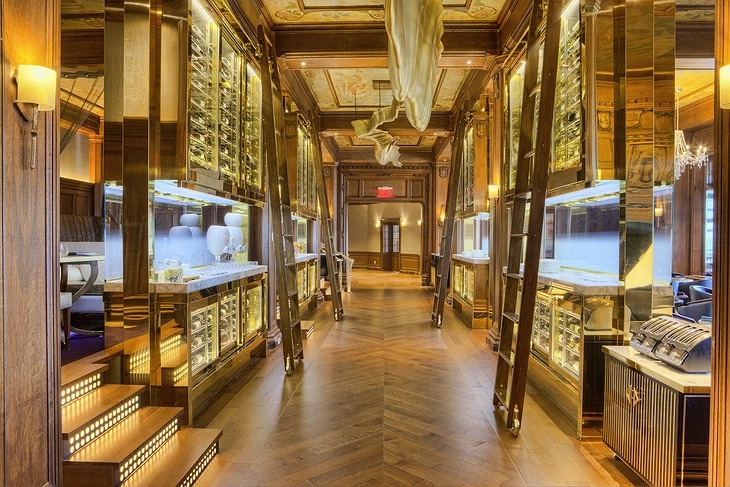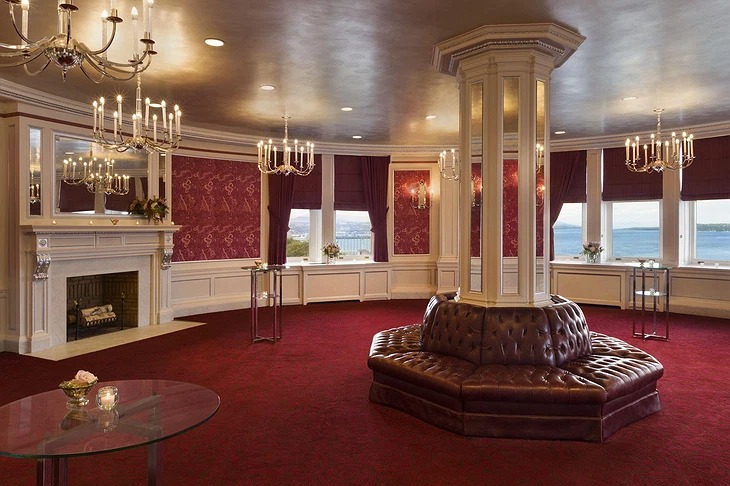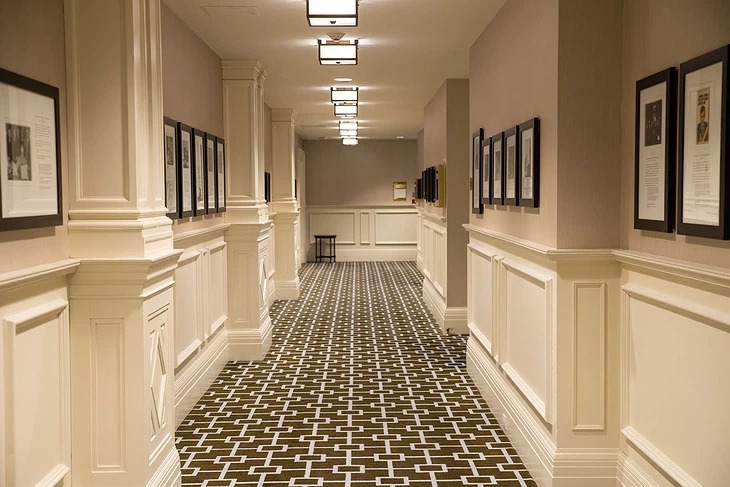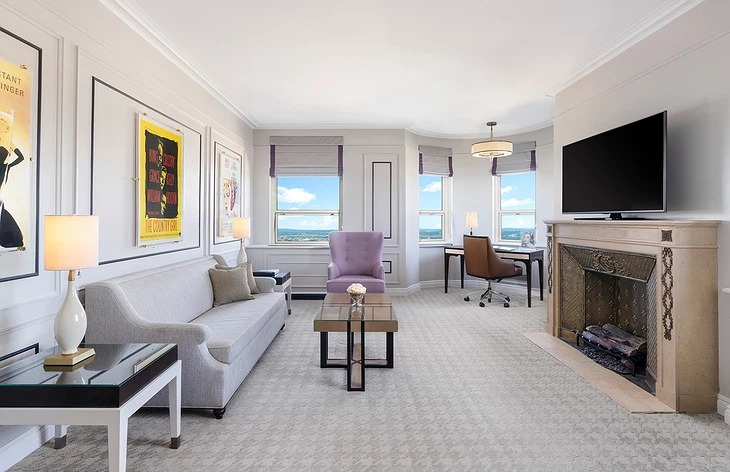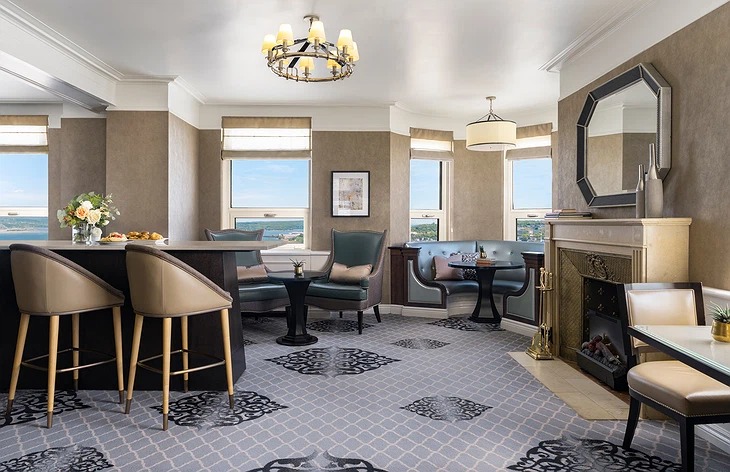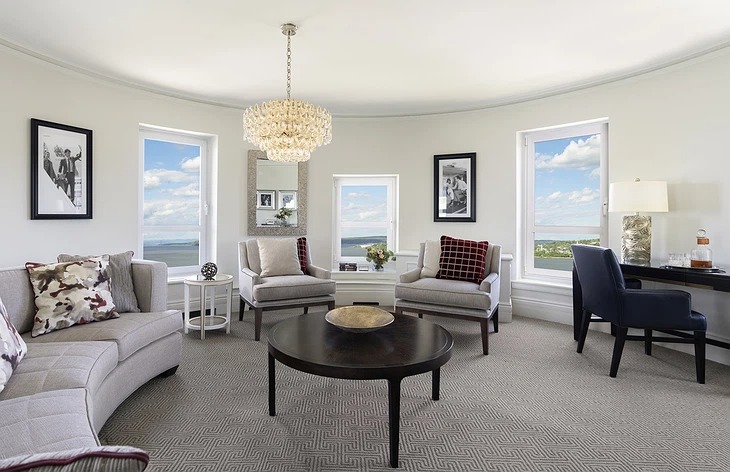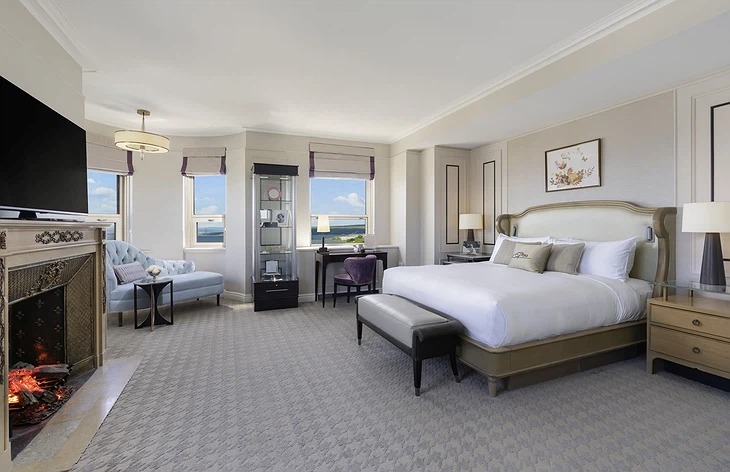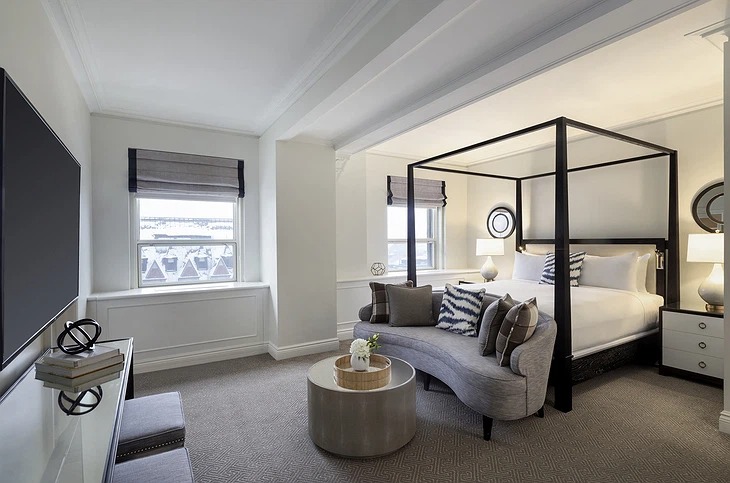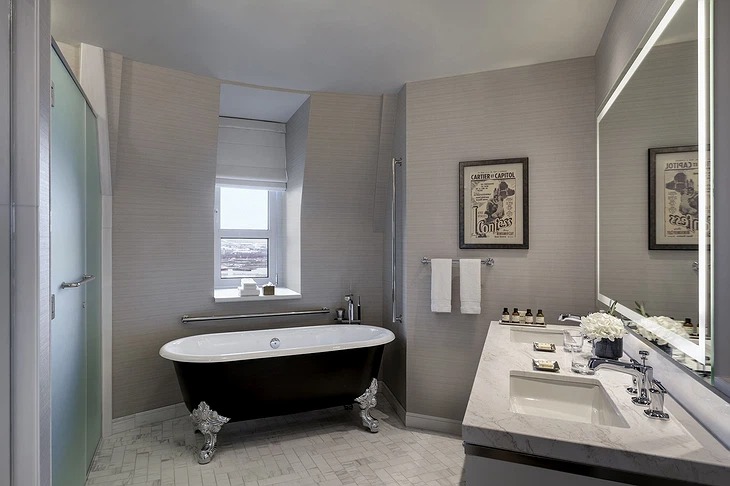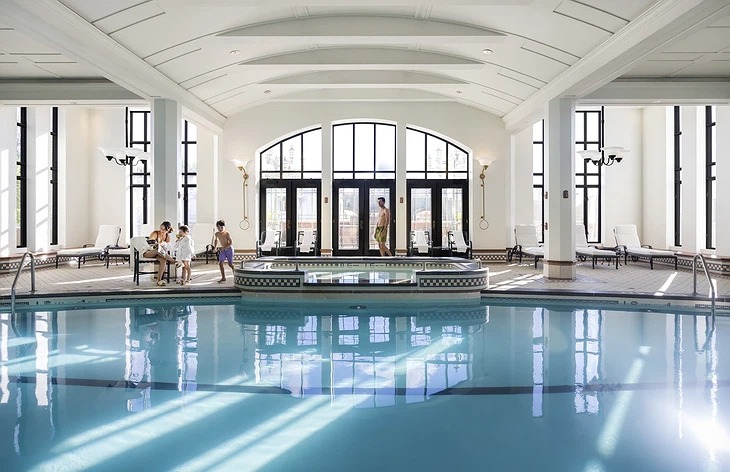The Fairmont Le Château Frontenac: Where Alfred Hitchcock’s 1953 Film “I Confess” Was Filmed
The Fairmont Le Château Frontenac, often simply called the Château Frontenac, is a historic hotel in Quebec City, Canada.
Located in Old Quebec on Cap Diamant, it offers stunning views of the Saint Lawrence River.
The hotel was built in 1893 and is renowned for its Châteauesque style, inspired by medieval French castles.
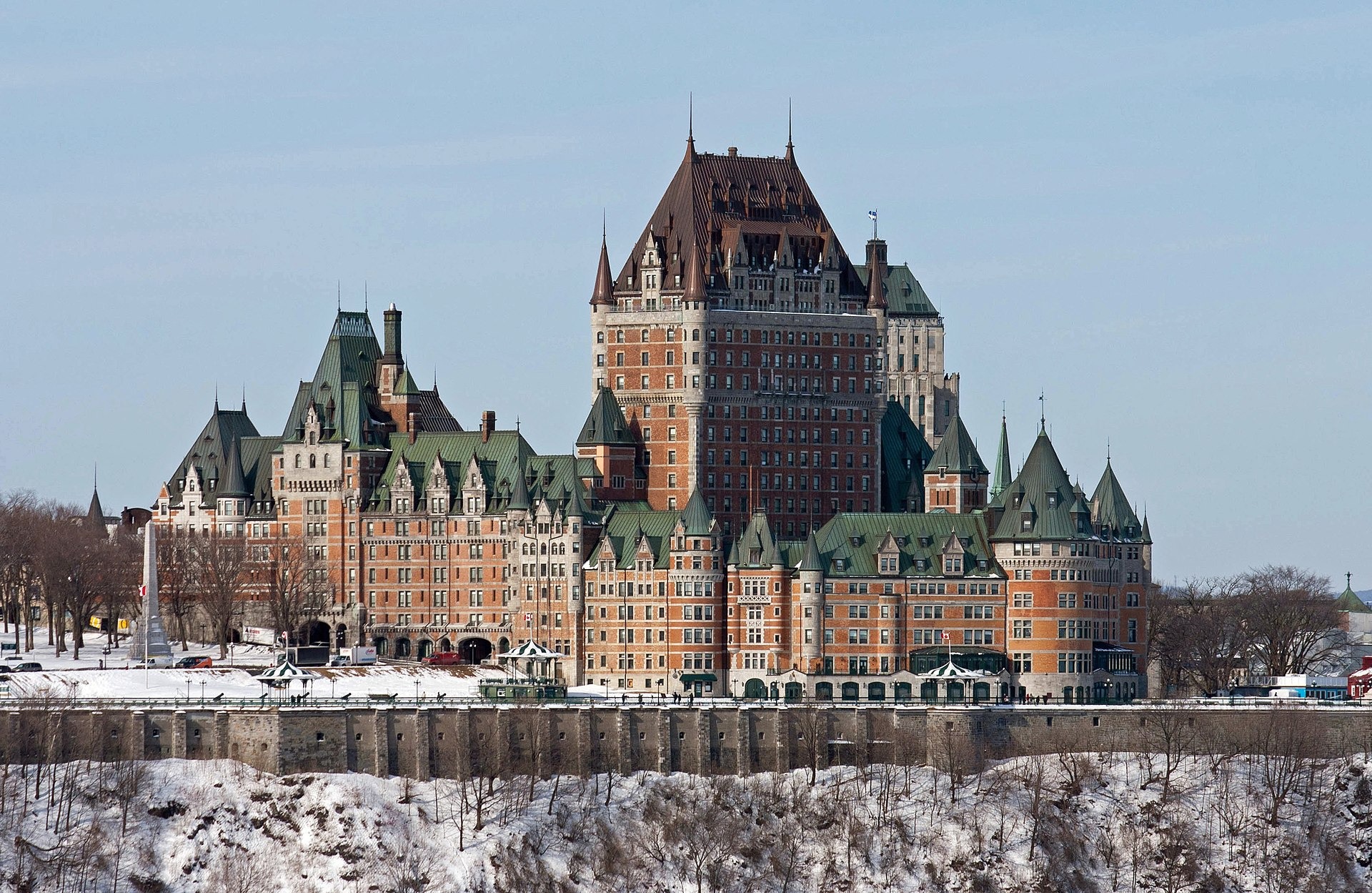
The Fairmont Le Château Frontenac: A Historic Landmark
The Château Frontenac was designed by American architect Bruce Price and built by the Canadian Pacific Railway company.
This hotel was part of a grand plan to promote luxury tourism across Canada with extravagant château-style resorts.
Its Châteauesque architectural style is characterized by steeply pitched roofs, circular and polygonal towers, ornate gables and dormers, and tall chimneys.
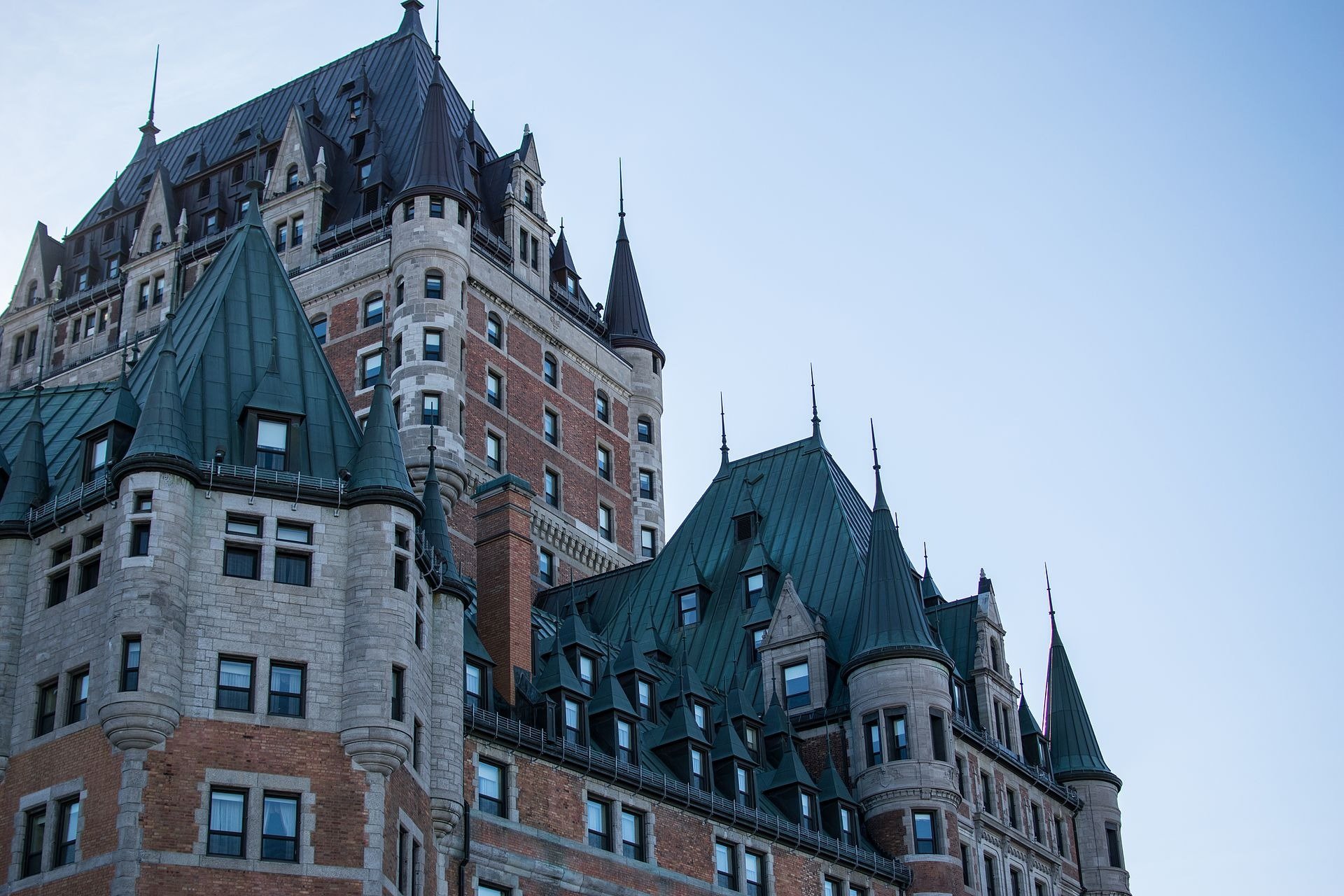
The hotel’s central fortress-like tower draws inspiration from medieval châteaux found in France’s Loire Valley.
The hotel was named after Louis de Buade, Count of Frontenac, who was Governor General of New France in the late 1600s.
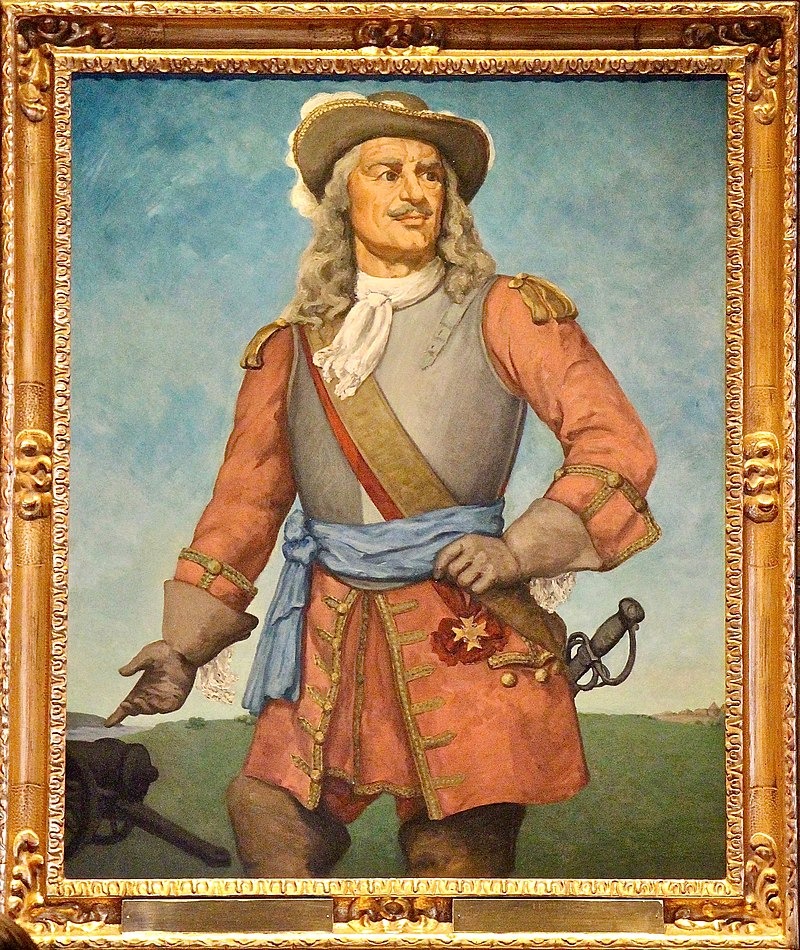
Before the hotel was constructed, the site was home to the Château Haldimand, built in the 1780s and demolished in 1892 to make way for the present hotel.
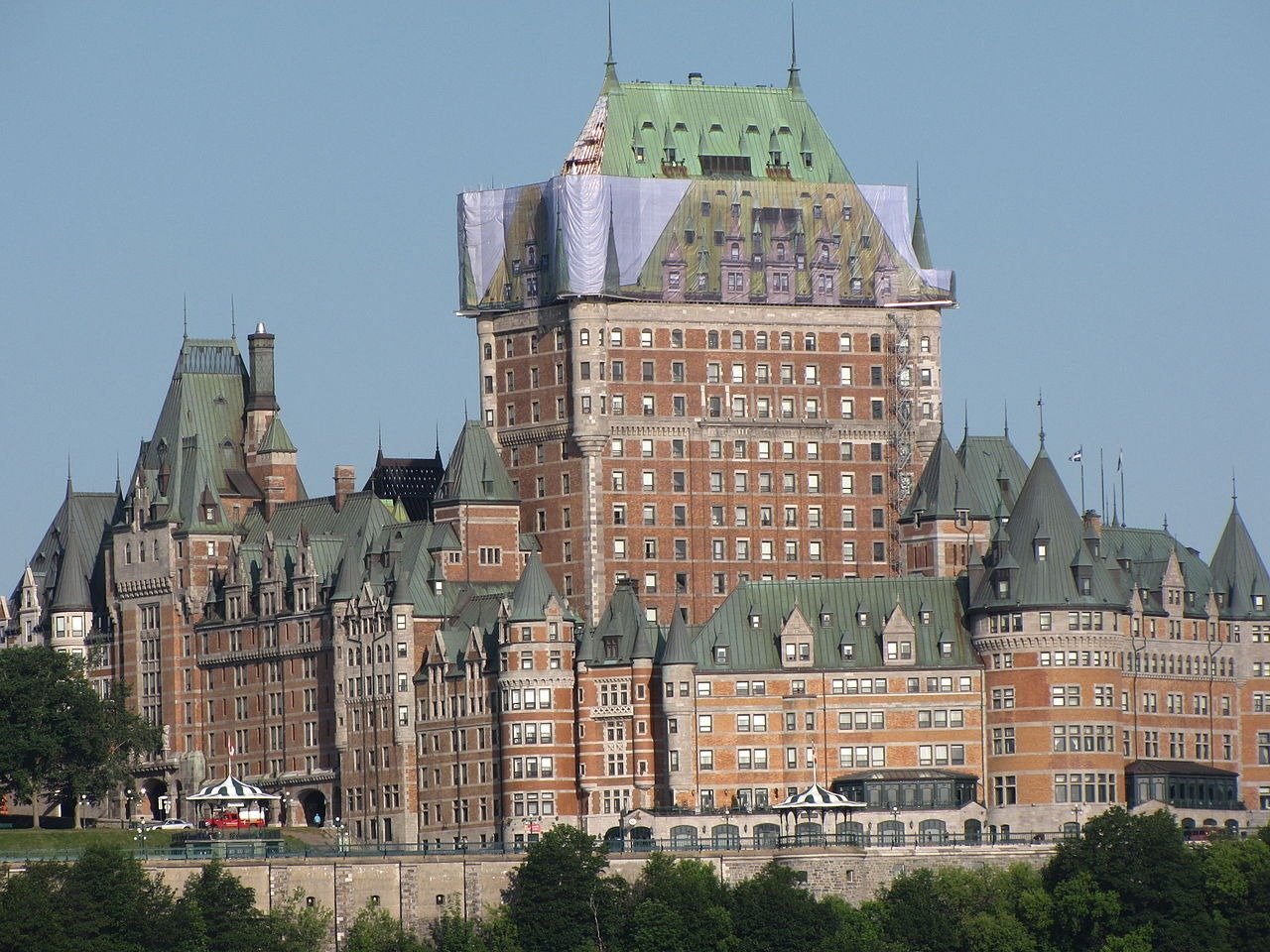
Horseshoe-Shaped Architecture
The hotel’s original design called for a horseshoe-shaped structure made up of four wings of unequal length, connected at obtuse angles.
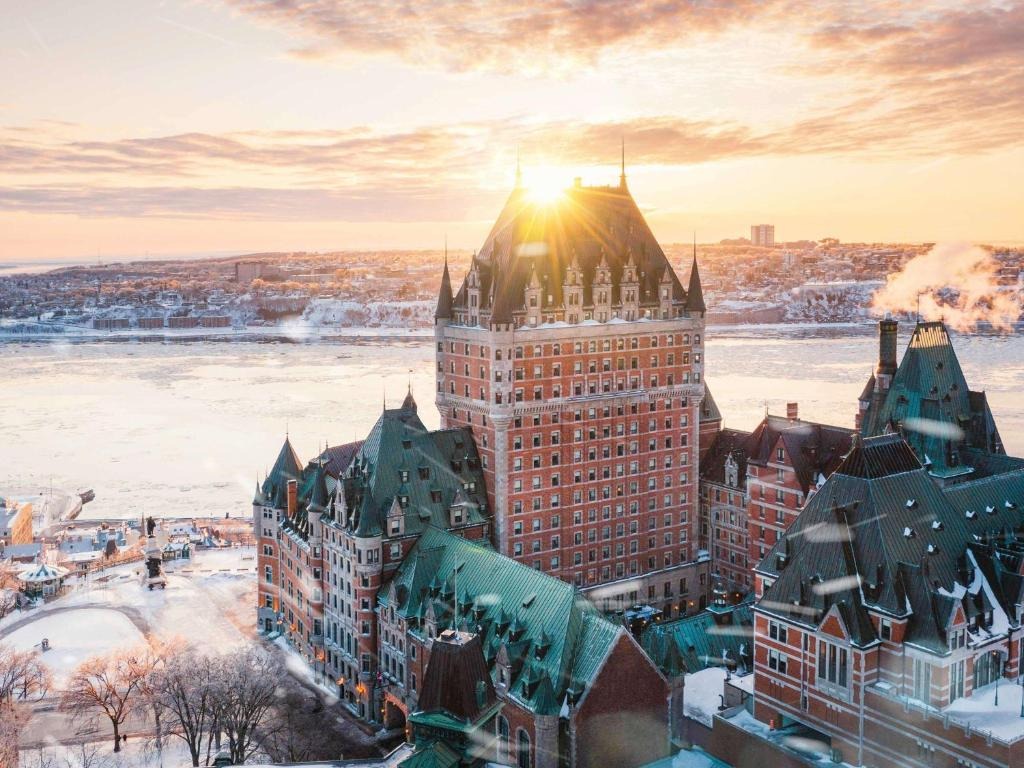
The exterior base is largely made of grey stone ashlar, with steel framing and Glenboig brick cladding.
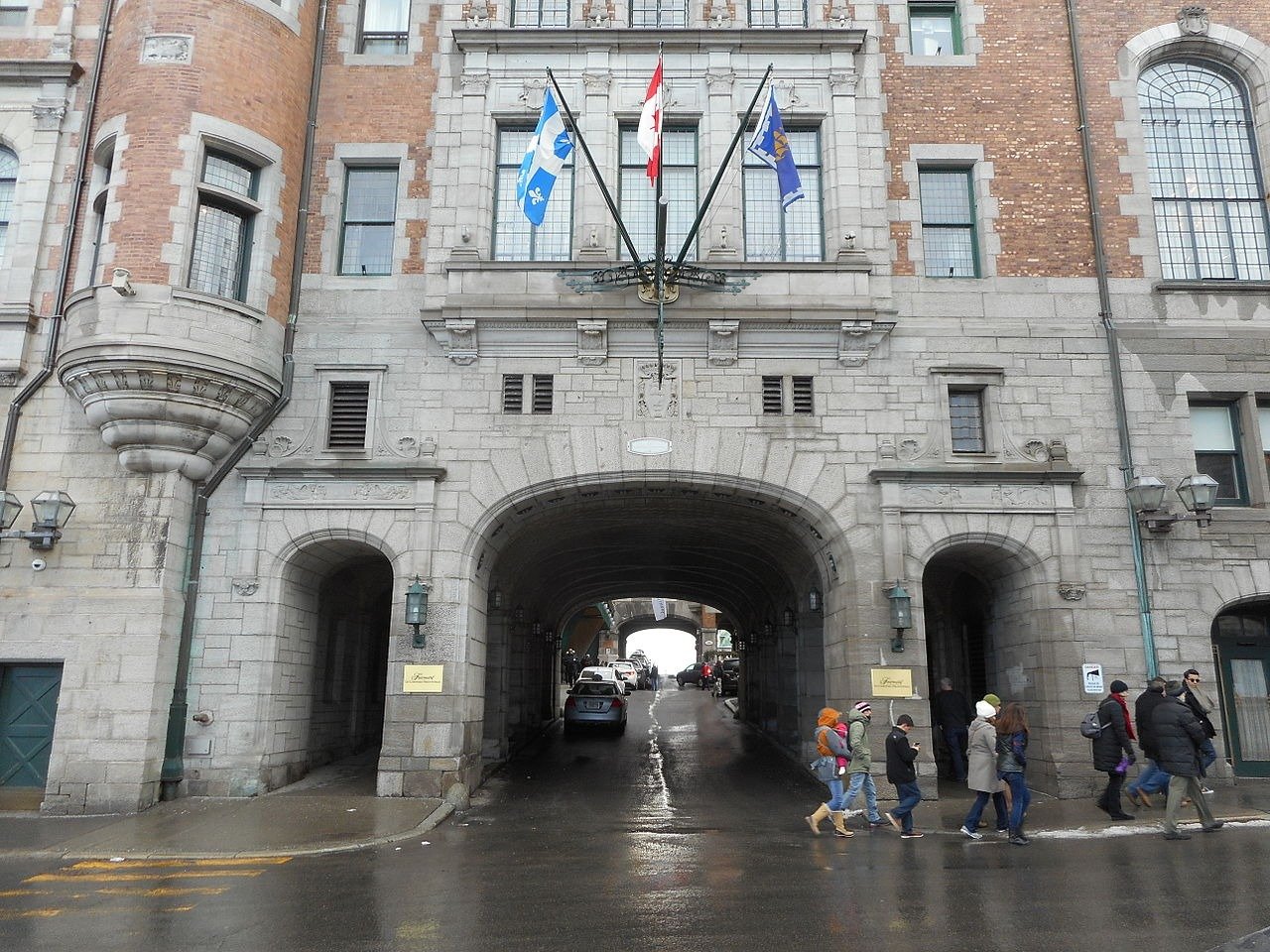
Inside, guests are greeted with luxurious materials including mahogany paneling, marble staircases, carved stone, wrought iron, and glass roundels.
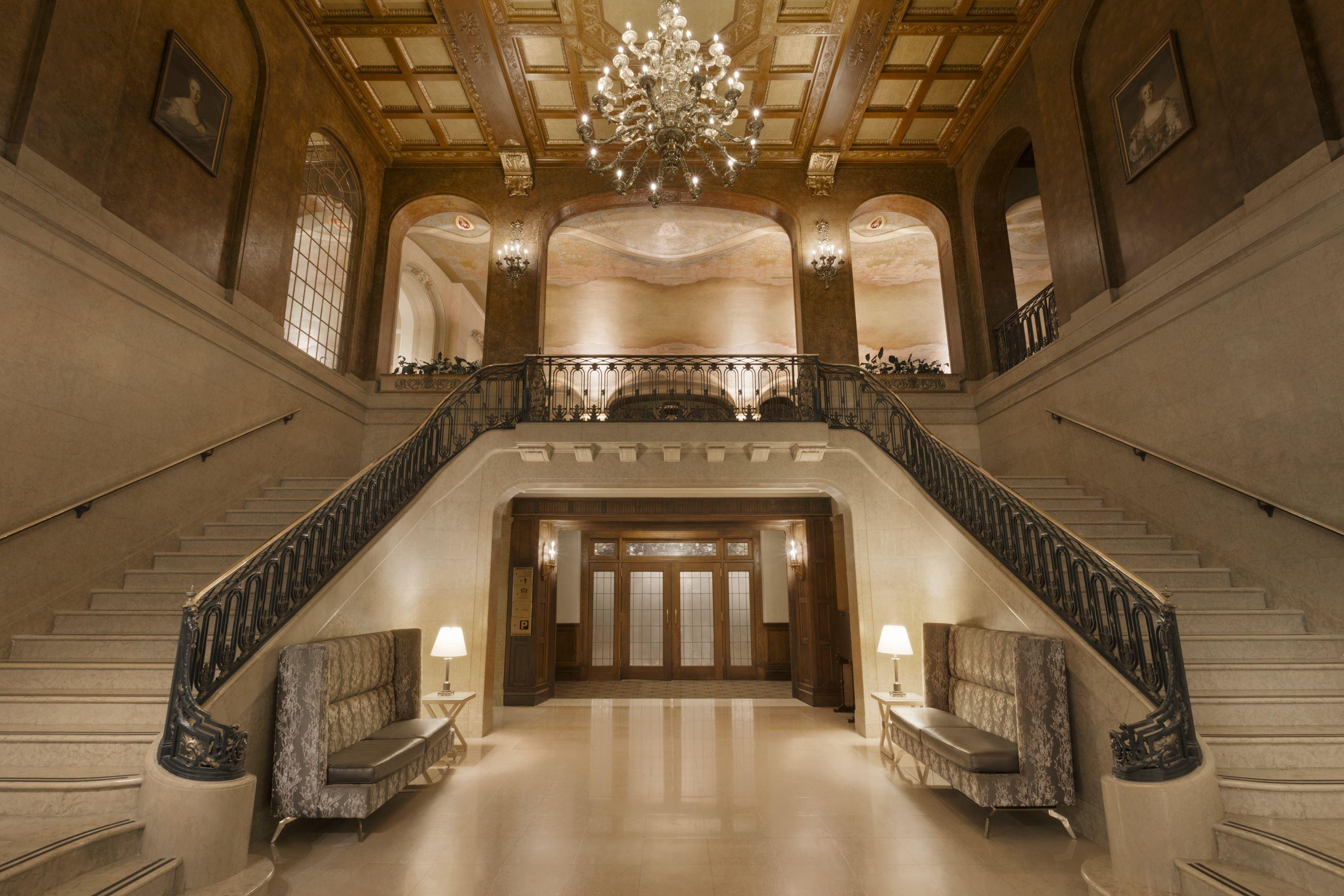
Unlike other Châteauesque-styled buildings in France, the Château Frontenac emphasizes Gothic elements, combined with Victorian polychromatic surfaces throughout its exterior.
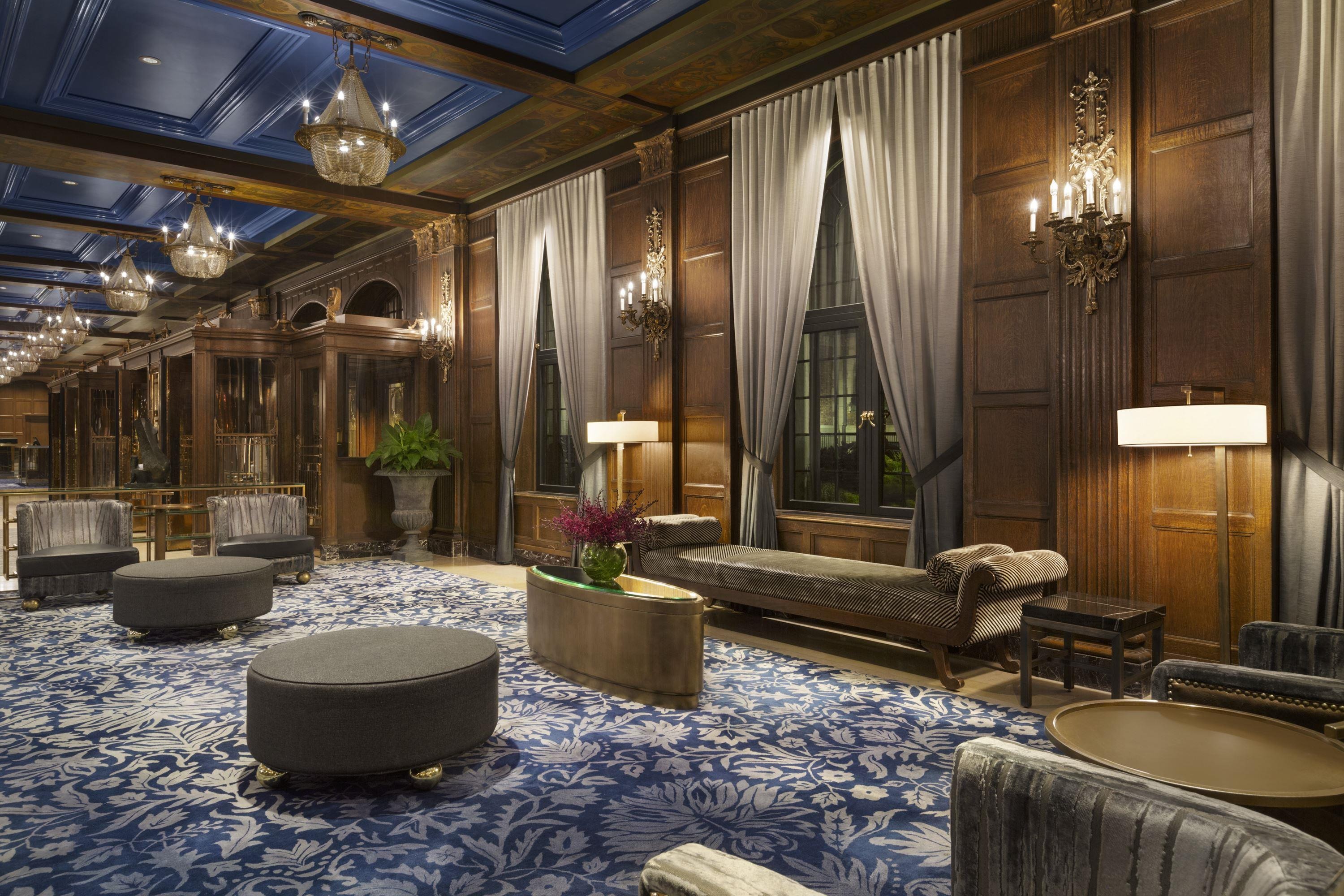
Expansions and Renovations
Over the years, the hotel has undergone several major expansions and renovations.
Notable architects such as William Sutherland Maxwell and Edward Maxwell contributed to its development, adding new wings and enhancing its grandeur.
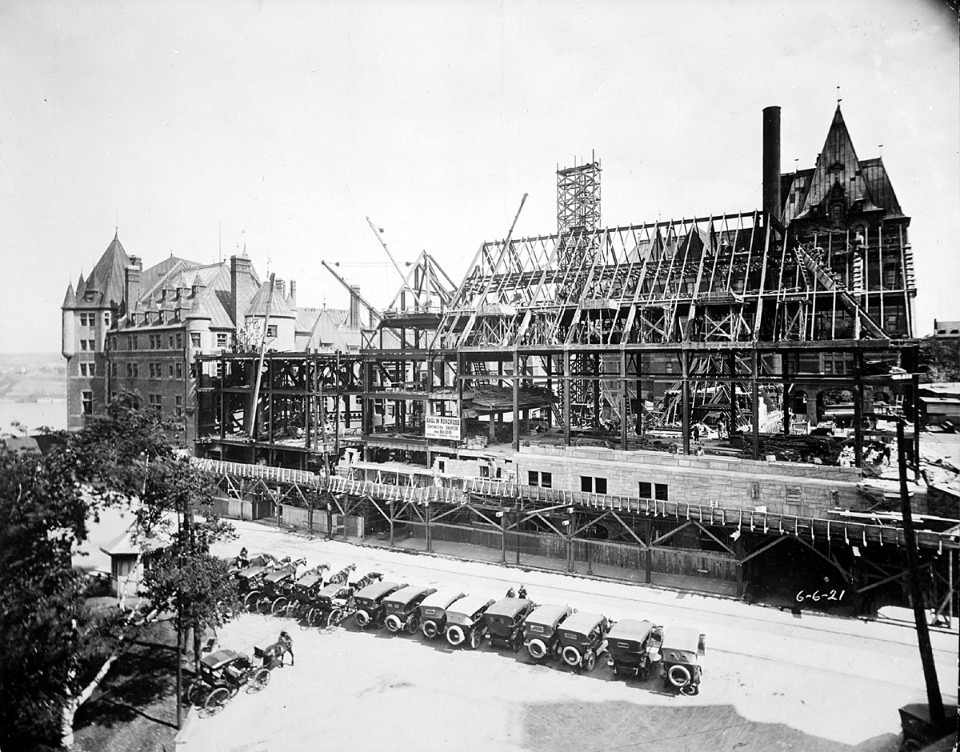
The most recent major expansion in 1993, led by renowned architect Robert LaPierre, introduced a new wing with a pool, fitness center, and outdoor terrace.
A Hub of History and Culture
The Château Frontenac is not just an architectural marvel; it is a hub of history and culture.
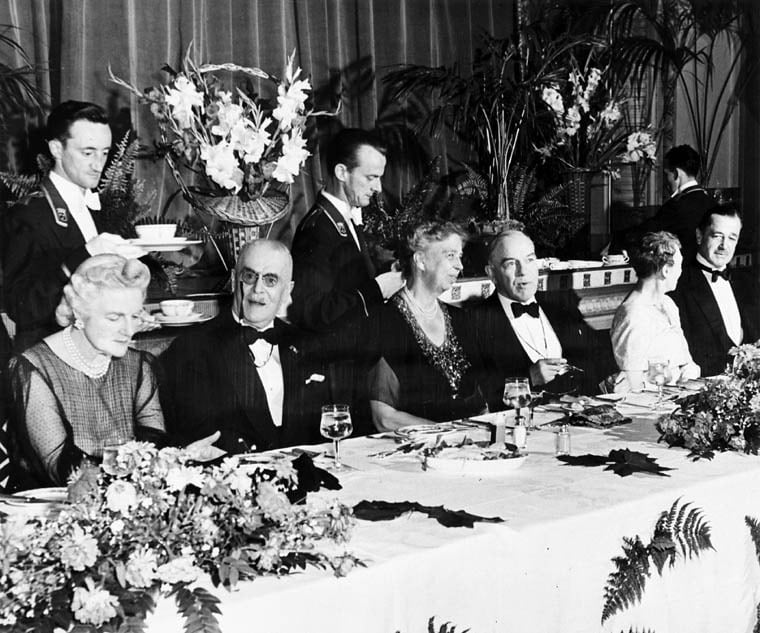
During World War II, the hotel hosted the First and Second Quebec Conferences, where American President Franklin D. Roosevelt, British Prime Minister Winston Churchill, and Canadian Prime Minister William Lyon Mackenzie King met to discuss military strategy.
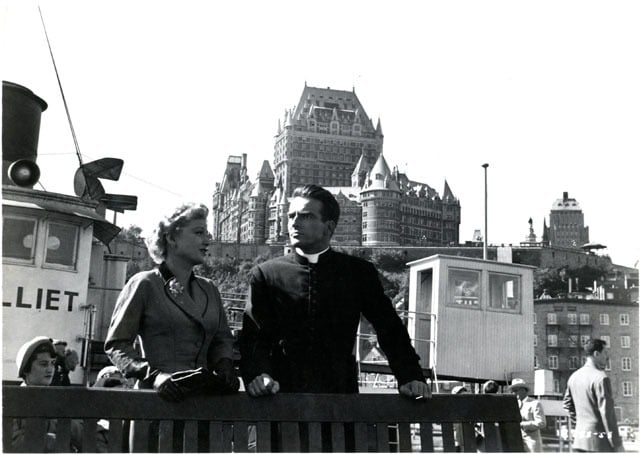
The Château Frontenac has served as an elegant backdrop for movies and television shows, including Alfred Hitchcock’s “I Confess” and the popular Korean series “Goblin.”
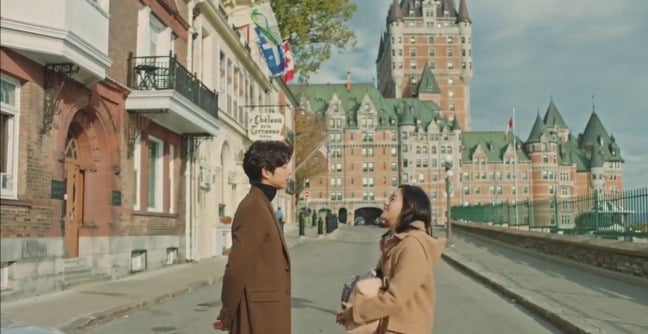
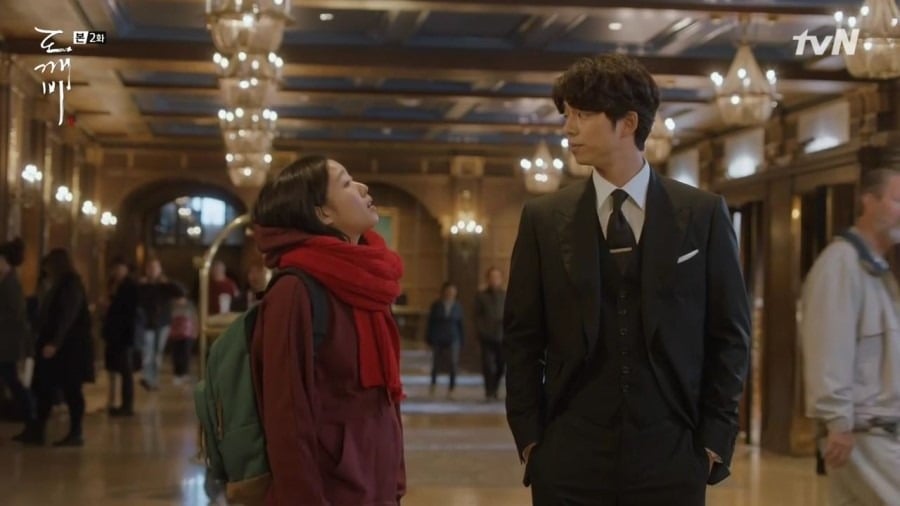
Its opulent interiors and stunning exteriors have welcomed star-studded guests such as Paul McCartney, Leonardo DiCaprio, Angelina Jolie, and members of the royal family.
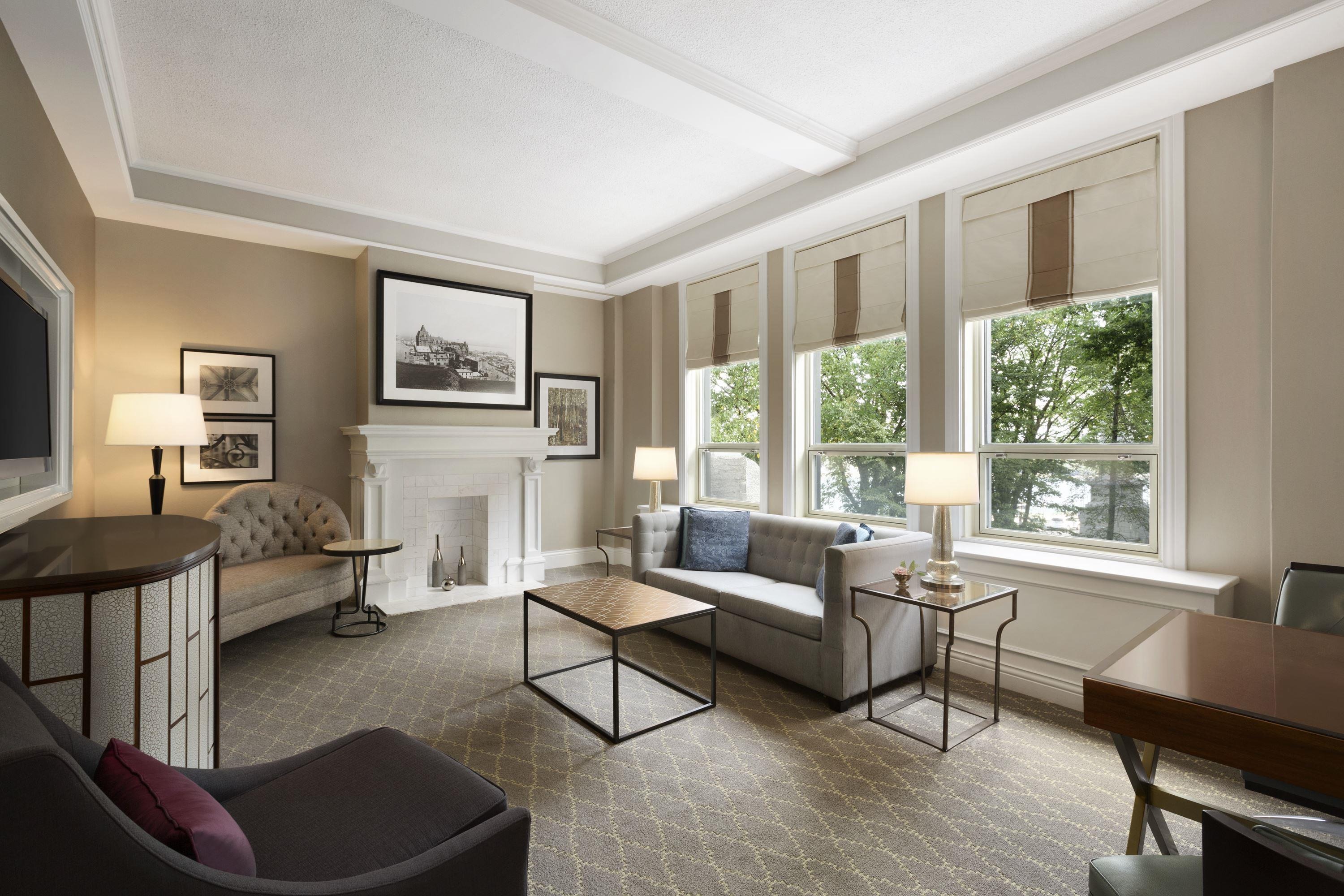
Specialty-Themed Rooms and “Bee Sustainable” Program
Today, the Château Frontenac offers 610 rooms and suites, including eight executive suites renovated into specialty-themed rooms.
These suites pay tribute to notable figures such as Winston Churchill, Alfred Hitchcock, Queen Elizabeth II, and Céline Dion.
The Celine Dion Heritage Suite, for example, features an Art Deco style decorated with images from Dion’s family photographer.
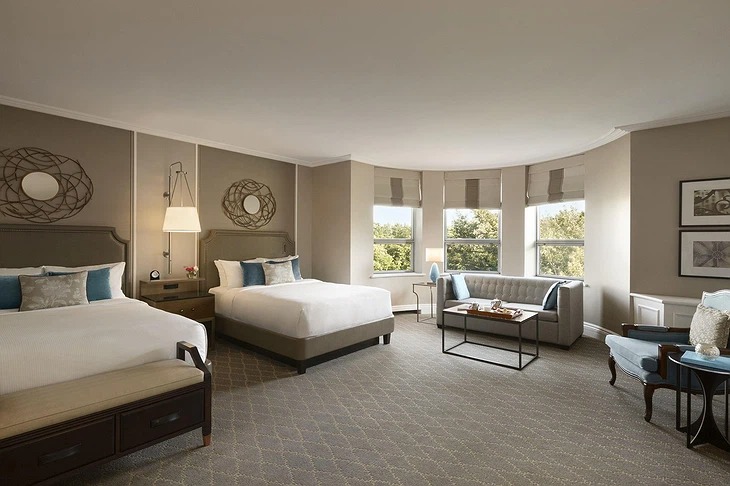
The hotel’s commitment to sustainability is evident through its “Bee Sustainable” program, which includes a rooftop apiary with nearly 70,000 honey bees.
The harvested honey is used in the hotel’s restaurants, contributing to the farm-to-table dining experience offered at its three acclaimed eateries: 1608 Wine and Cheese Bar, Bistro Le Sam, and Champlain.
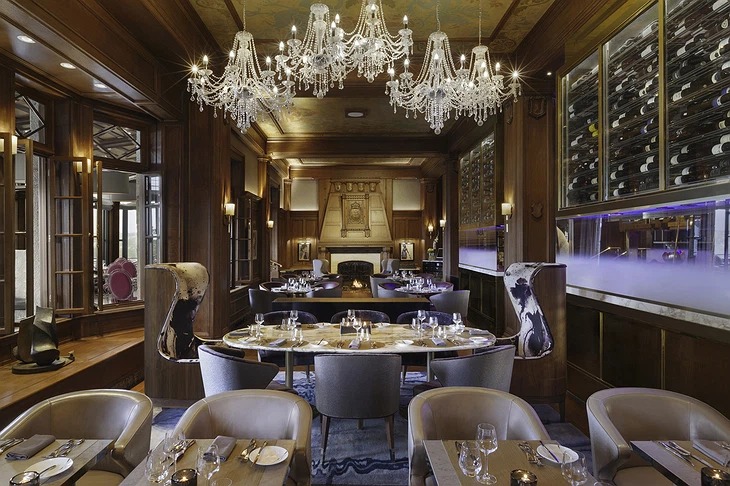
125th anniversary
In 2018, the Château Frontenac marked its 125th anniversary with a series of events.
The year-long celebration included historical exhibitions, musical performances, and festivals dedicated to local delicacies like maple syrup and chocolate.
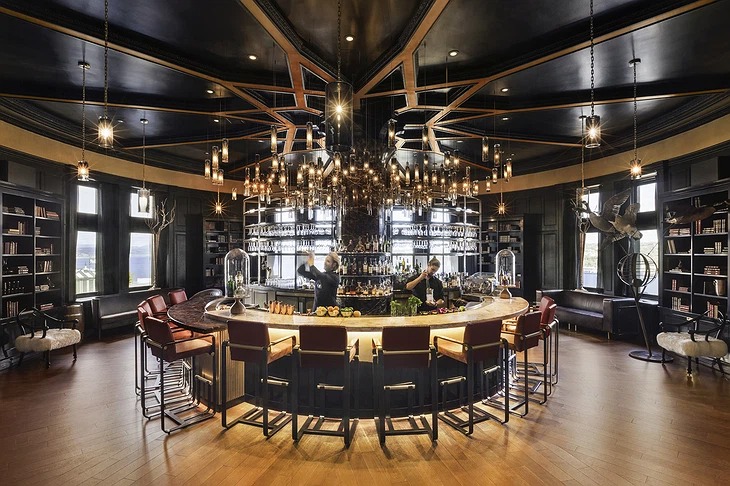
This milestone highlighted the Château Frontenac’s ongoing importance as a cultural icon.
General Manager Robert Mercure aptly described the Château Frontenac as “more than a hotel—it’s an icon, it’s a symbol of our culture, it’s a landmark.”
Here are some pictures of the interior of the hotel:
